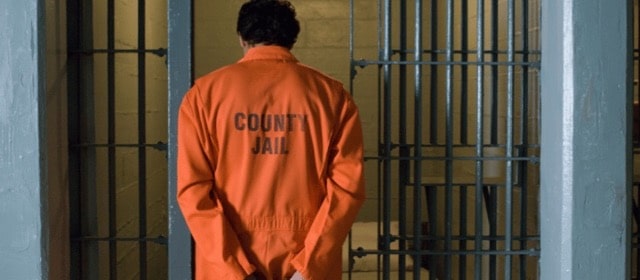Key Takeaways:
- If a parent goes to jail do they lose custody automatically?
- Do incarcerated parents have any parental rights?
- When can you terminate an incarcerated parent’s rights?
- How do the courts approach child custody when one parent is in jail?
- What happens to a child when a parent goes to jail who has sole custody?
- What are a grandparent’s rights when a parent is in jail?
- Can you file for emergency custody if the other parent is in jail?
- Regaining custody after incarceration: How it works
If you are a parent in jail, custody rights may be a big concern for you. You may be wondering if a parent goes to jail do they lose custody automatically or forever? Or more broadly, do incarcerated parents have rights at all?
On the other hand, if your child’s other parent is incarcerated, you may want to know if terminating the parental rights of incarcerated father or mother is possible or whether you will need to bring your child to visit a parent in jail. Grandparents have questions about their rights in these scenarios, too. We share insight on these topics and more below.
If a parent goes to jail do they lose custody automatically?
Not necessarily. A parent does not automatically lose custody or parental rights if they go to jail. For example, if a parent spends a few days in county jail for a non-violent offense, a judge typically will not change existing custody arrangements. Texas law encourages children to maintain relationships with both parents whenever possible.
However, if a parent is sentenced to an extended period in state or federal prison or is charged with a violent crime, their custody rights could be at risk. In these situations, the other parent may file for a modification of custody to gain full physical custody, either while the parent is incarcerated or to protect the child’s safety before trial. When parental rights are terminated in Texas, the parent does not retain any legal rights. Depending on the length of the sentence and the nature of the offense, the other parent could seek to terminate the incarcerated parent’s parental rights.
Do incarcerated parents have any parental rights?
When it comes to parent-in-jail custody rights, it’s generally impossible for a parent incarcerated for an extended period of time to maintain custody of a child because they would be physically unable to be present and care for the child. It’s also unlikely that an incarcerated parent would be able to convince a judge to allow him or her to assert any parental rights or make decisions involving their child while incarcerated.
Why courts rarely grant parents decision-making rights while in jail
Judges are generally reluctant to grant legal decision-making rights to parents serving extended prison sentences due to many factors. For one, many incarcerated parents are prohibited from seeing their children while serving a prison sentence. It’s also difficult for incarcerated parents to make informed decisions about their kids because they don’t have the opportunity to talk to teachers about educational issues, attend medical appointments with their child or monitor the child’s day-to-day activities.
Due to these limitations, courts are unlikely to find that assigning legal rights or responsibilities to a jailed parent is in the child’s best interest or beneficial for the child’s well-being during the period of incarceration. That being said, every case is unique, and a family law attorney can help evaluate your situation and explore the options available.
What rights does an incarcerated father or mother have?
In most cases, most parents don’t get many (if any) exclusive decision-making rights until after incarceration ends. More often than not, the other parent (or guardian/conservator) will end up being granted the right to make all of the decisions.
In Texas, it’s also very rare for a judge to grant an incarcerated parent access to their kids or require the other parent to bring the child up to the jail or prison for visits. However, if both parents agree or the court finds it appropriate, some supervised communication or ability to maintain contact may be allowed.
When can you terminate an incarcerated parent’s rights?
It’s very difficult to terminate parental rights in Texas, even when that parent has been incarcerated. Texas Family Code Chapter 161, which covers the grounds for involuntary termination of parental rights, stipulates there may be grounds to file a petition to terminate parental rights if the parent has been convicted of committing specific crimes. These include crimes that caused the death or serious injury of a child, among others.
Terminating the rights of a parent who has been convicted of a non-violent crime won’t be that easy, especially if that parent won’t voluntarily relinquish parental rights. In the state of Texas, it is presumed that having a relationship with both parents is in the best interest of a child, so the other parent would have to overcome that presumption—with clear and convincing evidence—in order to terminate the incarcerated parent’s parental rights.
If you believe terminating the parental rights of your child’s incarcerated parent is in the best interest of your child, we strongly recommend you speak with a family law attorney familiar with Texas laws regarding the termination of parental rights. You don’t want to waste time and money trying to terminate parental rights if you don’t have the necessary grounds to do so.
How do the courts approach child custody when one parent is in jail?
If the other parent (or legal guardian) has been sharing custody with the parent who is now incarcerated, that parent should speak with a family law attorney to discuss the next steps. What often occurs in cases where a parent is incarcerated is that parent won’t be able to appear in court for a hearing or final trial about custody matters.
Failure to appear in court usually allows the other parent to win the case by default, so long as the incarcerated parent received actual notice by proper service.
How is custody handled when an incarcerated parent misses court?
If the incarcerated parent doesn’t get to court for a custody hearing (though some parents do manage to get there), the court usually awards sole legal custody—referred to as sole managing conservatorship in Texas—to the parent who isn’t in prison or jail. The incarcerated parent may be awarded possessory conservatorship, but with default cases the court usually prohibits the incarcerated parent from having possession of or access to their kids.
However, some parents will agree to allow some form of possession once the incarcerated parent is released from jail or prison. Oftentimes, these arrangements start with supervised access through family court services, as long as the parent wasn’t serving time for an egregious offense such as those related to controlled substances, family violence, felony assault or neglect of a child, among others. The supervised access then can lead to a step-up visitation schedule, if the court feels that the party can rehabilitate in society.
Can a parent get sole custody if the other parent is in jail?
When one parent ends up in prison or jail, it isn’t unusual for the mother or father who is not incarcerated to consider seeking sole custody of their child. Whether that is possible, depends on the circumstances.
Some fathers ask us: Can a father get custody of his child if the mother is in jail? If you’re a dad who has been sharing custody, and your child’s mother will be spending an extended period of time in jail or prison, you may be able to get sole custody, at least for the time being. If the other parent will only be spending a few days or weeks in jail, it’s unlikely the courts will hear your case, unless something egregious has occurred.
Fathers who wonder “Can I get custody of my child if the mother is in jail?” should contact a child custody lawyer to discuss their options. Just as a mother would have the right to request sole custody in Texas when child’s father has been incarcerated, a father would have the same rights.
Of course, mothers also ask, can I get full custody if the father is in jail? The same laws apply to both parents in Texas. If the incarcerated father will be spending an extended period of time in jail or prison and/or is unable to appear in court to plead his case, the mother who has shared legal custody of the child would likely be awarded sole custody.
What happens to a child when a parent goes to jail who has sole custody?
Single parents who get in trouble with the law justifiably want to know what happens to a child when a single parent goes to jail? If there is no other parent or guardian, the child will likely be put into foster care or placed in the care of another family member. Depending on the length of parent’s sentence and severity of the criminal charges in question, the Department of Child Protective Services may eventually help arrange for the child’s adoption.
What happens to a child when a parent goes to jail but there are family members or friends who want to help out?
Family members often step in to care for a child when a parent is sent to jail or prison. Grandparents, aunts, uncles, siblings and other interested parties (like a close friend of the parent) can file a petition with the court to seek temporary custody (conservatorship) of a child until the parent is released and eventually seek permanent custody if the parent will be serving a long sentence or there are grounds to terminate the parent’s parental rights.
What are a grandparent’s rights when a parent is in jail?
Our firm frequently receives inquiries about grandparents’ rights in Texas. Broadly speaking, grandparents do not have any rights in the state of Texas, as it relates to their grandchildren.
However, they can petition the court for access or conservatorship (custody) of a grandchild under certain circumstances. The state—per Texas Family Code Sections 153.432-153.434, Subchapter H—is very clear regarding when a court may grant a grandparent “reasonable possession of or access to a grandchild.”
When a parent is incarcerated, when can a grandparent seek custody or visitation in Texas?
In Texas there is a presumption that a child’s parent should be the primary parent and have access to their child as long as they are a fit parent. A grandparent would need to prove, based on clear and convincing evidence, that the grandchild’s parent is an unfit parent and meet other specific criteria. A judge may award Texas grandparents visitation rights (custody) of a grandchild, provided:
1). At the time the relief is requested, at least one biological or adoptive parent of the child has not had that parent’s parental rights terminated;
2). The grandparent requesting possession of or access to the child overcomes the presumption that a parent acts in the best interest of the parent’s child by proving by a preponderance of the evidence that denial of possession of or access to the child would significantly impair the child’s physical health or emotional well-being; and
3). Finally, a grandparent requesting possession of or access to the child must be a parent of a parent of the child and that parent:
- (a) has been incarcerated 3 months preceding the filing of the petition;
- (b) has been found by a court to be incompetent;
- (c) is dead; or
- (d) does not have actual or court-ordered possession of or access to the child.
In truth, grandparents must reach a very high bar in order to gain even court-ordered access to a grandchild, much less conservatorship of a grandchild. However, if the grandparents have been playing an important role in the child’s life already and regularly see and care for the child, the legal hurdles will be easier to overcome.
Are there exceptions to the ‘significant impairment’ standard for Texas grandparents?
Texas Family Code 102.003 does afford an exception to the “significant impairment” standard. If a grandparent files an original suit within 90 days of the grandchild having resided with them for six months, the grandparent may not be required to meet the “significant impairment” standard.
On the other hand, grandparents who want to get custody but have had little or no prior relationship with their grandchild may face significant challenges in proving that a denial of possession or access to their grandchild will be harmful to the child.
Can you file for emergency custody if the other parent is in jail?
When one parent is incarcerated, the parent they share custody with will most likely be awarded full custody, provided the parent in jail will be incarcerated for an extended period of time. In such a case, filing for emergency custody probably wouldn’t be necessary because the parent already has access to the child and could instead file for sole custody.
Now, if the other biological parent currently does not share custody with the incarcerated parent, they should consult a child custody lawyer to find out what options are available to them, if any. If their parental rights have been previously terminated, they would not have standing to file for custody, emergency or otherwise.
Some people may be asking this question because their ex has been thrown in jail for a short period of time, and they want to get full custody. That would be a completely different scenario and it’s best to consult a child custody attorney if that’s the case.
Regaining custody after incarceration: How it works
If you have been incarcerated and want to regain custody of your child, the burden will be on you to take the appropriate steps to be a responsible parent and get more access to your kids, and if everything goes smoothly, regain custody.
Discuss options with your attorney
As your release date approaches, it’s critical to speak with a family law attorney about your options. Just because you have been convicted of a crime and spent time in jail or prison doesn’t mean that you can’t be a good parent in the future. However, the court will expect you to take consistent steps toward rehabilitation and stability before granting increased access or custody.
Take proactive steps to become a good parent
Regaining access and custody may not be an option for parents who have committed egregious crimes or had their parental rights terminated. However, if you’ve served your time and can show you have taken steps to be a better parent (which will take time and effort on your part), there is hope.
You will likely need to start out with some sort of supervised visitation arrangement, where you visit with your child in the presence of a representative of social services or a trusted family member. Provided you go on to live as a law-abiding citizen and continue to show you are fit to parent, you may be able to go back to court to request more lenient arrangements (like overnight visits) and eventually seek shared child custody in Texas, such as expanded standard visitation.
We can help you navigate issues involving incarcerated parents
If you are facing incarceration or are already incarcerated and have questions about your custody rights, it’s important to seek legal guidance from child custody lawyers as soon as possible. Likewise, if you are the other parent or an interested party (like a grandparent or family member) with questions about access to and/or custody of a child of an incarcerated parent, timing is also critical, so be sure to speak with an attorney right away.
Have questions about child custody or child support when one parent is in jail? The family law attorneys at the Sisemore Law Firm in Fort Worth are here to help. To schedule a confidential consultation with our firm, call our office at (817) 336-4444 or schedule an appointment online.
Photo Source: Canva.com





